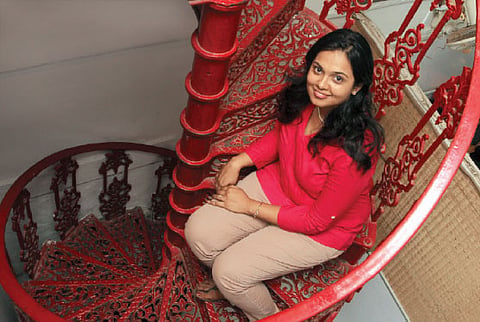

This perhaps is strangely poetic, but for the elderly who live with dementia, the dreaded disease of lost memories, the best gift is to forget that they cannot remember. “Families are left wondering about the next step and their communication with patients becomes almost nil. The equations with immediate families are all marred by conspicuous silences and confusion,” says Amrita Patil-Pimpale, founder Echoing Healthy Ageing (EHA), an organisation that provides a qualitative life for dementia patients and their families. With alternative therapy, craft activities and trained professionals, EHA is engaging and fulfilling lives for patients of dementia in Mumbai.
Started in September 2012 (the month dedicated to Alzheimer’s) by Amrita, EHA this year alone has trained over 260 professionals on Alzheimer’s care and has catered to patients aged between 60 and 98 years. An IT engineer, Amrita formerly worked as a software programmer and business consultant. While pursuing her Masters in Management in the UK, she was hired as special carehome operator by the British High Commission to look after the elderly. “This got me interested in the subject and I took three certificate courses—two university and one country course in dementia care. I had structured ideas about changing the current situation of neglect in the lives of patients suffering from dementia and during one workshop in India I realised the situation here was the worst,” says Amrita. She came back the same year and started EHA.
Today, Amrita is also an independent dementia care researcher for the University of Northampton, UK. “In a report released by the Alzheimer’s and Related Disorders Society of India in 2011, almost 3.7 million people in India are suffering from dementia. This number is expected to double by 2020 and reach 10 million. So it’s progressing fast and my personal experience with the diseases also reiterates that,” she says. While working for dementia care in UK, Amrita’s late grandmother showed similar symptoms of early Alzheimer’s, which went initially unnoticed as the family thought it was a natural part of ageing.
“Our goal is to concentrate on three identified areas. First, provide guidance to families, second empathy to healthcare professionals and third, training to primary care givers,” she says. Amrita devised short-term programmes for better understanding of the subject and has been training professionals and non-professionals for the past two years. “When we started, we trained 300 professionals such as nurses, nursing tutors, social workers, occupational therapists and matrons, last year we trained 500 and now we aim to train 1,000 by 2014,” she says, adding that older people with mental health problems face the stigma of being aged and forgetful due to which they do not have access to the right treatments for dementia. “The care needs of a person living with dementia are complex. Family and formal caregivers need support and guidance to address these needs,” says Amrita.
Patients themselves can avail a trained caregiver who attends to them for about 12 hours a day at `15,000 a month. “So these services could range from anywhere between `7,500 and `25,000 and the short-term programmes for family members could be anywhere between `100 and `3,000,” she says.
Recalling a case Amrita says, “A former freedom fighter octogenarian was mostly confined to her home and participated in fewer conversations as Alzheimer’s set in. At EHA, she received alternative therapy and after two months we could see visible difference in her,” says Amrita.
Currently working with hospitals such as Sion Hospital and KEM Hospital among others in Mumbai, Amrita has understood the roadblocks in formal education of the disease and is working towards spreading further awareness on the subject. “It was a challenge initially and still is in terms of making families understand that dismissing the problem under the rug will not help. Then there are those who understand but find the disease too challenging to cope with,” she says. During her initial workshops in the city, she met a student who expressed her inability to understand her grandfather’s symptoms. “She told me she was rude to him, and felt guilty about it now,” says Amrita who believes that the actual overcoming of the disease would be when people would be more aware, enriching the lives of those with dementia.
Decode Dementia
Dementia is not a specific disease, but rather a syndrome of different signs and symptoms. It generally refers to a loss of the brain’s ability to function normally. Dementia is more common in older individuals. There are many forms of dementia. Alzheimer’s disease is one form.